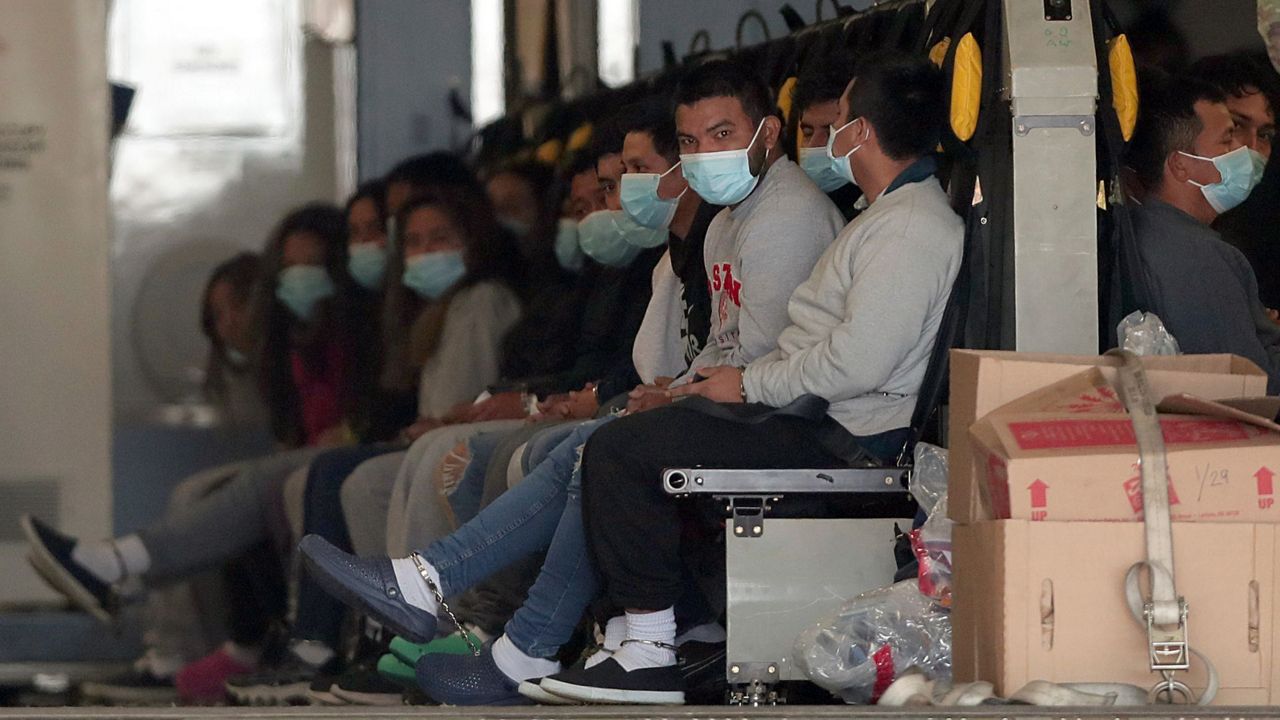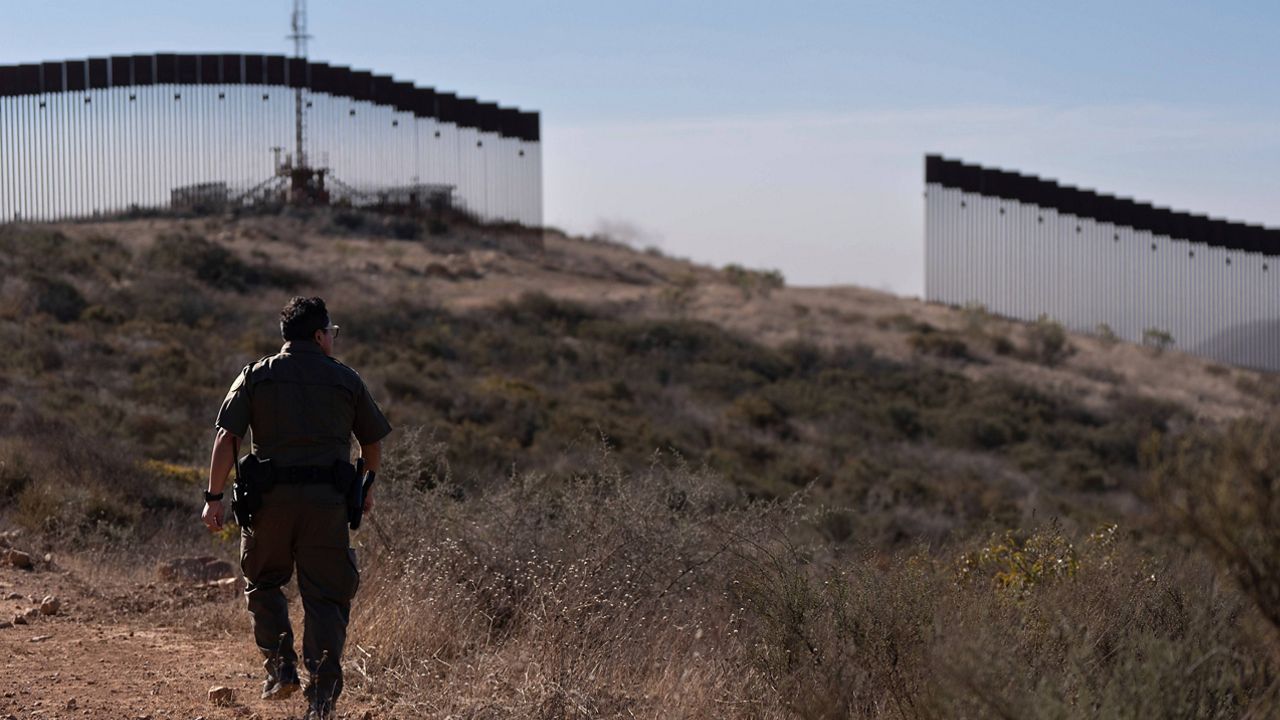DEL RIO, Texas — The risks migrants are willing to take to come to the United States were clearly evident sometimes on Friday, April 9 in Del Río, Texas, when a group of migrants had to be saved from the river by officers of the Val Verde County Sheriff Office, DPS, and Border Patrol.
To understand better how the migrant surge is affecting different border counties in Texas, I met with Val Verde County Sheriff Joe Frank Martinez.
He took me to a spot in the river where migrants are showing up daily. Sheriff Martínez said while we were driving to the river that he wants all Americans to know and understand the real dimension of the problem he and his officers have to deal with on a daily basis.
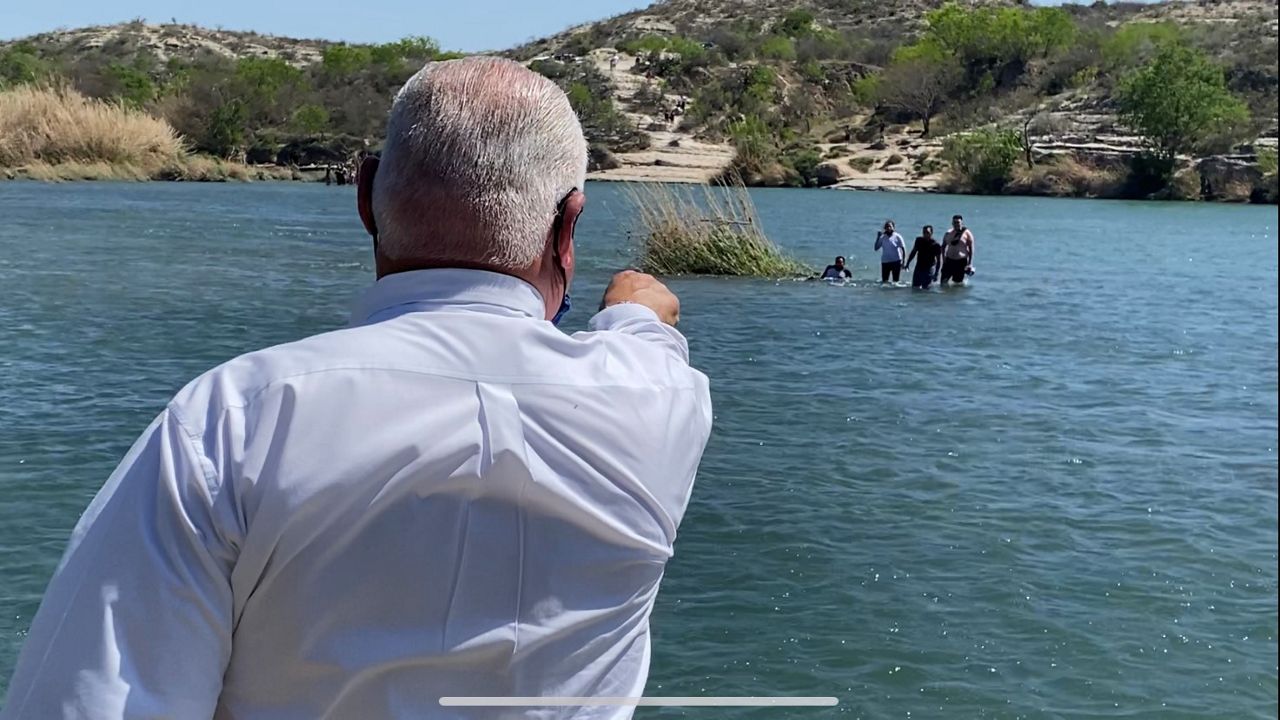
“Our office is stretched to the limit. We’re doing more work for immigration issues than we’re doing for members of our county.” Said Martínez.
But nothing could have prepared me for what I was about to witness.
The abandoned house by the river shore border patrol has set up a makeshift processing spot is littered with clothes and personal belongings the migrants leave behind. That morning a group has already left, it was 2:30 pm.
After being debriefed, Martinez took position under a tree to observe across the river with his binoculars.
“They come across and we wait for them here. They’re not afraid,” said Martínez jovially while he waited.
Only ten minutes after he said that, a line of human figures began moving on top of the mountain. The river is so shallow here that migrants usually walk across, but it’s not always that safe as the water level rises significantly after La Amistad dam releases water pressure periodically.
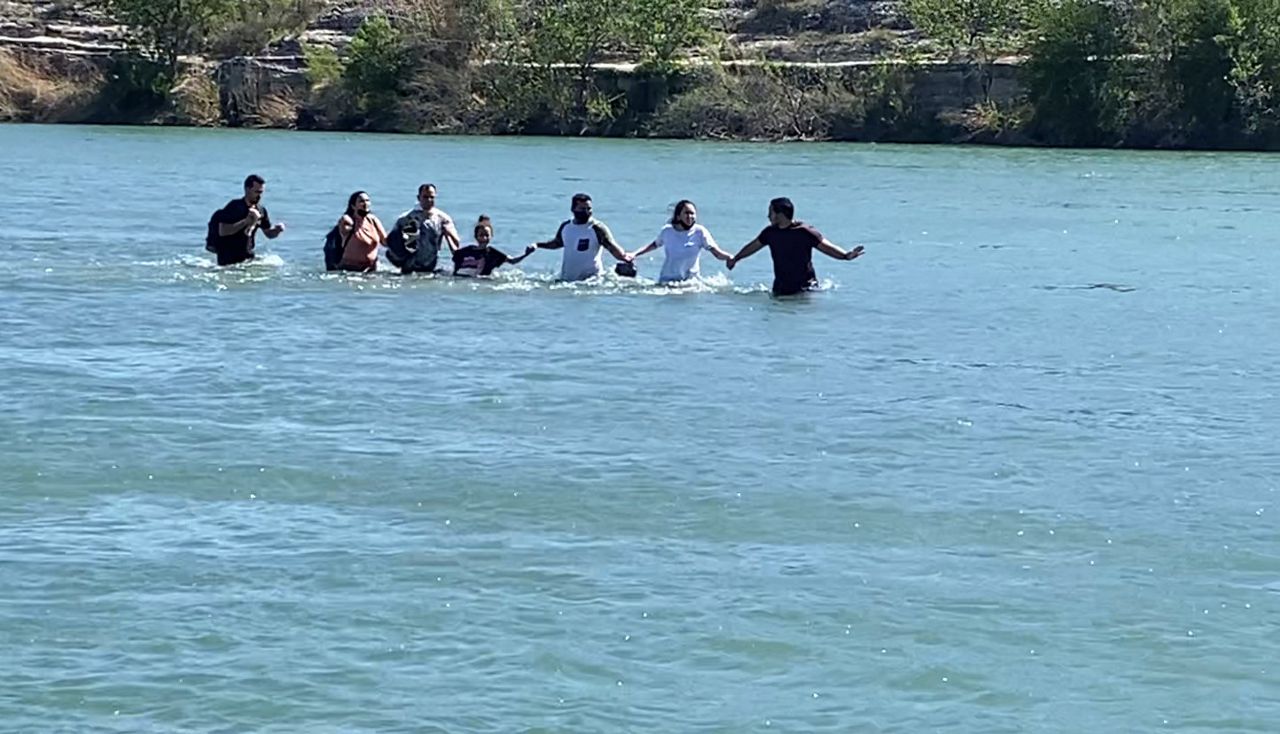
The group of migrants begins walking, but as they reached an islet right in the middle of the river, suddenly the situation turned into a matter of life or death. One of them started feeling faint and they started crying for help.
“Stay right there! It’s too deep. It’s too dangerous. We’re getting a boat to get you out!” Martínez yelled at them in Spanish.
But another group of migrants joined them at the same spot soon, among them a girl of about 9 years of age.
The sheriff calls for help and several Valverde County deputies arrive, along with more border patrol agents who repeat the order to the migrants who were getting more scared and desperate with every passing minute. One of them disobeyed the sheriff’s orders and advanced towards the shore on the U.S. side, probing the depth of the river to see how far he can get, leading the others to the deepest part of the river.
Sheriff Martinez is worried and frustrated by now by their defiance and lack of concern for the child and the fainting adult they carry.
“The stakes are real, anyone of them can draw any minute. They are exhausted from a long trip, they’re carrying backpacks. And this shirtless guy! He’s trying to brave it to come across. He might end up a drowning victim if he continues the next 40 yards,” said Martínez shaking his head.
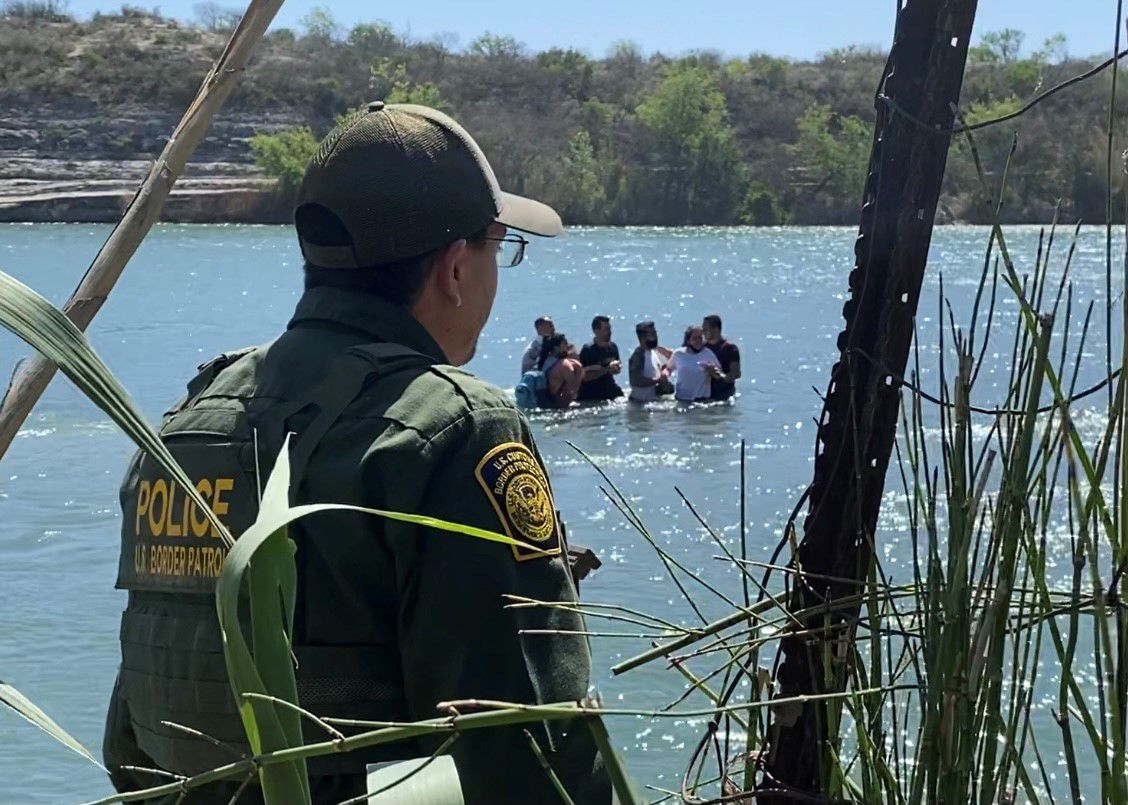
He checks for the status of the boat that hasn’t made it here yet. With less than 20 yards, the migrants are more resolute than before, synchronizing their advance while they chant in unison “Uno dos! Uno-dos!” At that point it becomes necessary to throw ropes at them.
Fortunately, the ropes were long enough and all of them one by one were pulled out of the water. The migrants in tears and in visibly shock were finally in the United States and a tragedy was averted. Martínez said without the ropes, they would all have been dragged by the strong current had they reached the final part where it’s deep enough to cover an adult completely, and no bottom can be discerned.
Thanks to Sheriff Martínez, these migrants may have a chance at a new life in the United States, but many others have not been this lucky as drawings are a common occurrence along the Rio Grande. Martínez said that eight migrants have drowned in Del Río since the beginning of the migrant surge in January.
Martínez is now able to have more officers thanks to a state grant that allows him to pay them overtime.
“But that is about to run out and I’m gonna have to do the same work with less officers. We can’t be always at all times on the river,” he warned. He said he hopes the federal government takes notice of their situation and sends more resources and help.
“We’ll continue to fulfill our duty no matter what, for as long as it takes.” Martínez said as he shook my hand and visibly smiled under his Texas flag themed mask.





